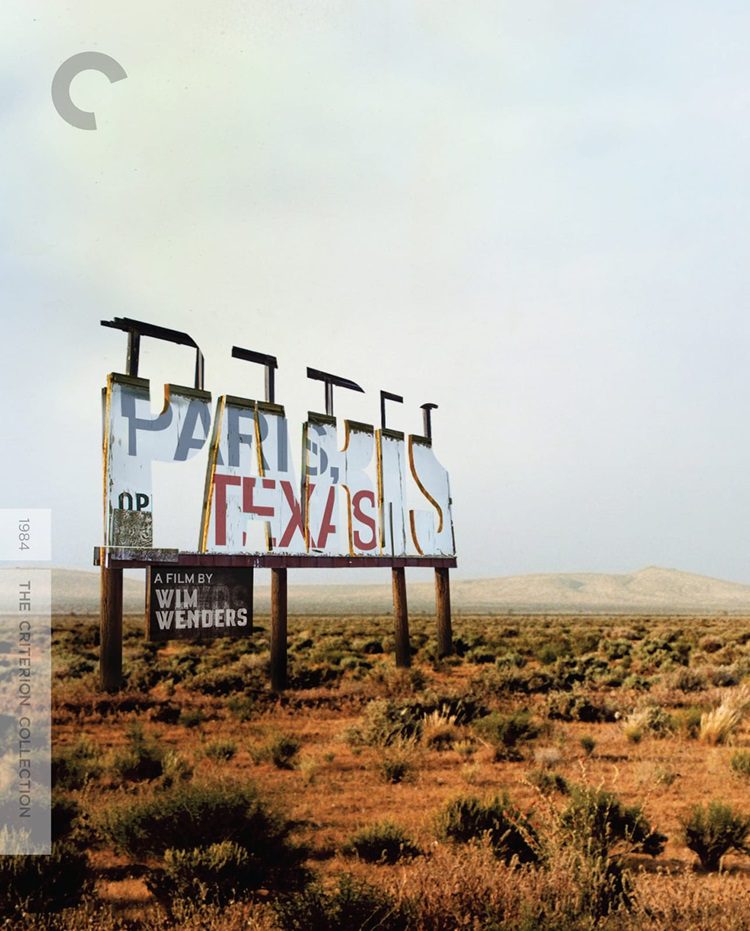
There is a quiet, lingering beauty to Wim Wenders’ Paris, Texas (winner of the 1984 Palme D’Or). And once it settles in—after you let its meditative groove wash over you—it takes on a layer you may not see coming. As a teen, the film’s spell struck me, but it didn’t move me quite like it does today, as a guy in my mid-40s. I’m not sure what that says. Certain films just don’t pack as much of a punch until life has roughed you up a bit.
Buy Paris, Texas Criterion Collection 4K UHDAt its heart is Harry Dean Stanton, delivering a subtle, scarring performance. His Travis wanders through the bright desert of a mute heartache. Is he searching for something? Is he lost? In time, the movie answers these questions—earning, not imposing, them. Reconnecting with his estranged son and wife (Nastassja Kinski), he is a broken man after a reset; a lone wolf who sees the things that matter, what’s worth living for and what’s important. To do this—he and we realize—he must face himself, fix himself.
Alone.
Sam Shepard’s script is a study in restraint. It doesn’t go for big declarations. It’s more attuned to the distance between people, between the lives they want and the ones they have; the looks, the gestures, that make a person who they are—understanding, of course, deeper depths exist, a vast, aching gap we can only skim.
Robby Muller’s cinematography stuns. He paints the American Southwest as a sun-kissed map of highways, motels, and empty stretches of land. It’s both barren and luminous, desolate yet filled with possibility. Every frame feels like it carries the weight of a memory. And Ry Cooder’s slide-guitar score is perfect—a bittersweet thread that weaves through the film, saying what the characters cannot, amplifying their silences into something moving.
A story about connection, Paris, Texas is light on plot, resolving unconventionally. It’s an unhurried road movie, an odyssey of little moments that lets each one breathe. This is one of those films that sits in your soul, its truths lingering long after the credits roll.
Perhaps it’s a masterpiece. It certainly feels like one.
For those who love the film, the Criterion Collection’s 4K + Blu-ray set is a gift. Supervised by Wenders himself, the 4K restoration is superb—for me, the hazy warmth of Muller’s magic hour cinematography evokes an immediate nostalgia. The Blu-ray brims with extras: commentary featuring Wenders; archival interviews with Wenders, Muller, Cooder, Stanton, Dennis Hopper, Peter Falk, and Hanns Zischler; interviews with filmmakers Alison Anders and Claire Denis; deleted scenes and Super 8 home movies; a gallery of location-scouting photos; behind-the-scenes photos by Robin Holland; and the theatrical trailer. The accompanying booklet includes an essay by Nick Roddick, interviews with Stanton, Shepard, Kinski, and Dean Stockwell, and excerpts from Wenders’ book of photos, Written in the West.